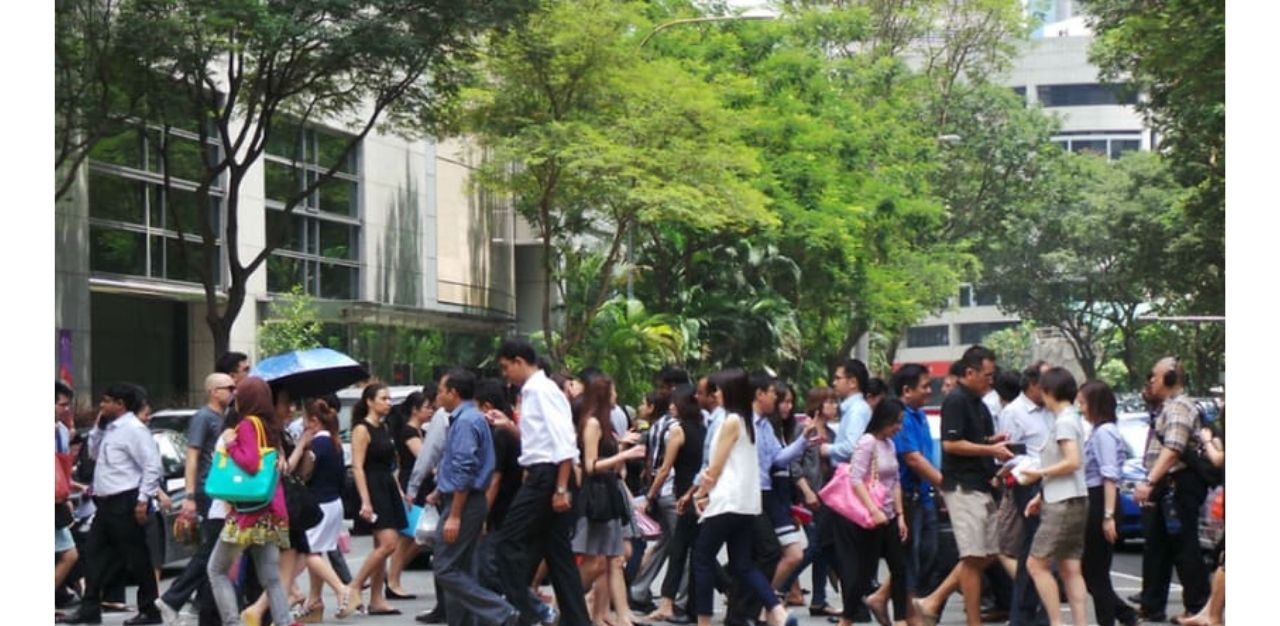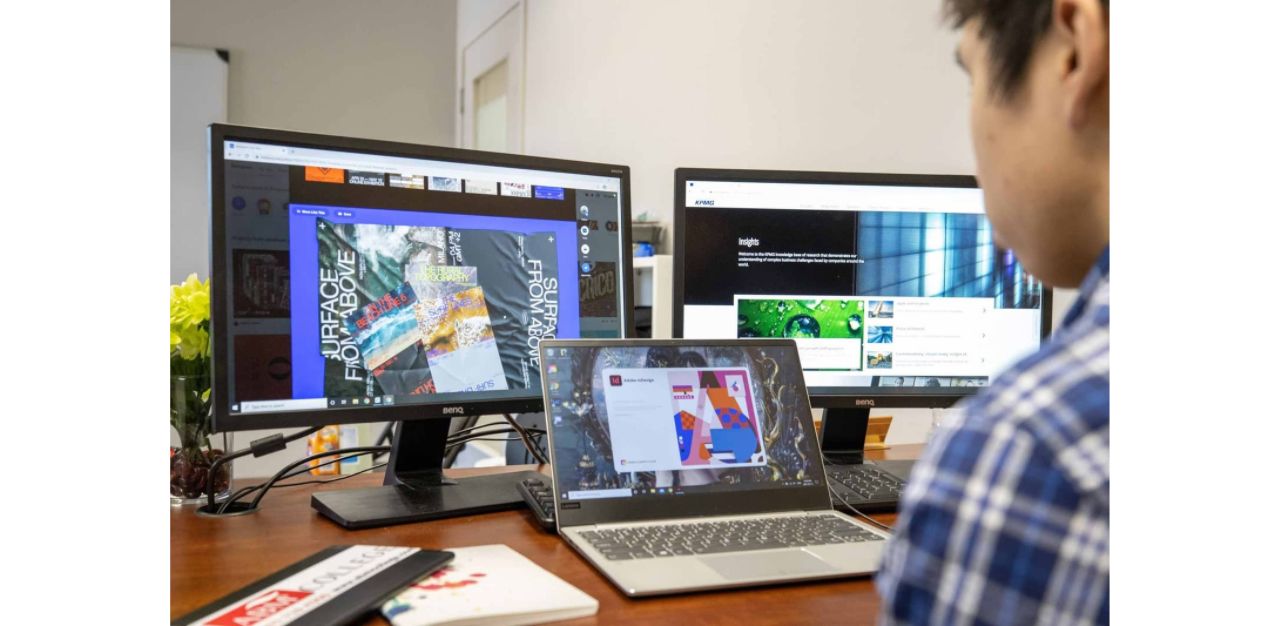During this extraordinary period of the COVID-19 pandemic, many companies are having more employees work from home (WFH). While working from home has blurred the boundaries between work and personal time for some, it has also offered flexibility and more time for others to hack WFH by working two or more full-time jobs remotely.
For some in the United States (US), combating the job crises and loss of salary caused by the pandemic meant they have gone on to take on multiple full-time jobs discreetly. In fact, overemployment has become a growing phenomenon there.
What is overemployment?

According to the Collins Dictionary, overemployment is the situation where workers cannot reduce the time or the number of hours spent earning an income. Today the term overemployment is derived from the overemployed community, a group of Americans who are keeping to a 40-hour workweek while being employed in two full-time jobs at once. The community was founded by a man who goes by the alias of Isaac Price online. He figured that he could work two remote jobs without getting caught. Doing so would give him a leg up in income and give corporate America “the middle finger for always trying to screw the little people over”.
He first thought of this idea while crafting an exit plan upon hearing rumours of an impending layoff at his company. He had landed a new job just after months of slogging through interviews, but as he was thinking about how he would throw in the towel, he realised: “why quit my job at all?” Mr Price stayed on his old job while starting his new one, overlapping the two jobs as a hedge against uncertainty during the pandemic. He told himself at first that he would only do it until the end of the month, but as time went on, he managed to work two full time jobs at once and the layoff for the first never happened. This wait-and-see strategy has netted over $300k of additional income for him – income he would have lost had he simply quit his job.
From a tax standpoint, overemployment is legal in the US, according to Mr Price. In an article he penned for the overemployed community, he clarifies that remote jobs are presumed-at-will employment. “We live in a free agent economy [and] it’s legal to work multiple remote jobs and sell your skills to multiple bidders,” he says. While one can get fired from his primary employer for legally working multiple remote jobs, he argues that “the truth is [one] can get fired anytime whether one works one or multiple remote jobs”.
At the core of overemployment is the belief that there is no reward for loyalty in the corporate world. The key to early financial freedom for the overemployed community is to “keep your heads down, mouth shut and to work two jobs discreetly”.
And some of the white-collar employees are doing just that. Working remotely because of the COVID-19 restrictions, they have secretly taken on second and even third full-time jobs, becoming overemployed.
Overemployment on our shores

While the overemployment trend has gained steam with the rise of remote work and WFH, which often means less employer supervision of workers, can this trend overseas also take off in Singapore? Here, having two full-time jobs is probably unheard of, but it is actually not prohibited, according to Ministry of Manpower’s regulations.
In fact, during the Circuit Breaker period last year (2020), even the National Wage Council recommended that when there is no work, employers should support employees taking up a second job to mitigate the impact of Covid-19. This would be mainly part-time or temporary work.
While the various advisories and recommendations have paved the way for employees to supplement their income with a second job, doing the work is another matter entirely. For some, it was the first time juggling two jobs, or that the new, part-time job will be very different from what we’re used to.
Unlike the overemployed community in the US, it would also be difficult to hold two full-time jobs in Singapore discreetly as employers are responsible for CPF contributions and statutory and contractual benefits. This makes hiding a second employment “on paper” almost impossible.
Ms Rachpal Kaur Tulsi, from Aventis Learning Group, says while holding two-full time jobs here is usually allowed, working discreetly on a second job is not advisable in Singapore as “you will most likely be in violation of their employment contract with their primary employer”. Most work contracts would have a clause on holding a second employment, and by not being upfront, one risks losing a job if found out.
Should the terms of the employment contract be violated, the employer has the right to take disciplinary actions as specified within the employment agreement, which include termination or even a lawsuit for the breach.
Also, Ms Tulsi says that while there are no restrictions on holding two full-time jobs, a person should really consider the toll it will take on his health and wellbeing. She says a full-time job here can already be demanding and having to juggle two jobs and other life responsibilities can take a toll on the physical, mental, and emotional wellbeing. “Even if you have a supportive employer who allows you to have a second job, there could be increased scrutiny to ensure that your quality of work is not compromised,” she adds.
“The primary concern for employers is whether quality is compromised. Therefore, it is unlikely that organisations would be open to the idea of employees having a second job,” the 52-year-old career advisor says.
With the work-from-home situation now, overemployment in Singapore takes on a hybrid nature. Ms Tulsi says it is quite common for people to dive into a second employment that is “freelance in nature”. These include giving private tuition, photography, and baking – where one does not have a second employer, and the work is usually done outside work hours and on their days off for a fee instead of a fixed salary. Since these jobs do not have any conflict of interest with their primary jobs, most employers would not have an issue with it.
Ms Tulsi says the fact that many people are jumping onto the freelance bandwagon is attributed to their fear of not knowing if the industry or organisation they are working in will survive the pandemic, and they are keeping their options open. This way, one is not left in the lurch “as there is still another stream of income coming in” should the company they are in does not survive the pandemic restrictions.
According to SingaporeLegalAdvice.com, a private entity that was founded in 2011 to provide legal information for individuals and small businesses, about 3 in 10 Singaporean workers admit to taking up part-time jobs to supplement their full-time salary.
“People have been using this time [in the pandemic] to reskill and upskill, and creating work opportunities that are freelance and giving themselves the flexibility to conduct the work at hours that are convenient to them. They can [also] have the freedom to determine how much they would like to earn. They’re using the WFH to test waters, to study the markets and needs and design their offerings,” Ms Tulsi says.
A graphic designer juggling three jobs to make ends meet

While holding two full-time jobs may not be advisable for some in certain industries, there are those who are hustling and juggling multiple jobs in this remote working situation just to make ends meet.
Graphic artist Samuel (not his real name), 33, juggles three remote jobs concurrently. He is a full-time graphic designer at his own agency, a part-time graphic designer at an events agency and a part-time marketing executive/graphic designer with a fitness studio.
His employer at the events agency pays for his CPF, which perhaps explains why he could take up multiple jobs as there is no conflict in CPF payments and statutory and contractual benefits.
Samuel, who is single, is not badly off yet he chooses to hold multiple remote jobs because “I’m still young and have the capacity to do it”. He says the cost of living in Singapore is high, and it gets harder to make ends meet as the years progress. and his taking up multiple jobs that engage his skills in graphic design help him “update and upgrade himself in this competitive job market”.
“I get to meet different clients, work on different platforms, and explore a lot more concepts and ideas. I get to challenge myself and fresh clients allow me to constantly evolve and stay relevant,” he says.
The work-from-home situation has also “given [me] room to do more, both work-wise and in my personal pursuits”.
“I get to choose what I want to do as well. For instance, if I feel like I want to touch this project today, I can just do it, instead of being at the office where I am tasked to do work beforehand,” the graphic designer says.
Samuel adds that there are less distractions at home because colleagues do not come to him to chat and there are fewer face-to-face consultations, which are time-consuming. He feels that Zoom meetings are more concise and efficient because people just want to “quickly finish the meeting and be productive”. “In a way, working from home has shifted our focus to be more results-oriented,” he says. All these factors have given him the flexibility and time to take on multiple projects and jobs.
Holding several remote jobs does not mean that he can do away with one job easily. He still has to uphold his work standards, regardless of how much pay he is receiving from his clients. He says every client will receive the same quality of work because that is his “work ethics”.
He says all his employers know that he is holding multiple jobs and are supportive of it — as long as he juggles his time well and does not neglect any of his projects.
“My employers trust me and it’s about getting my work done rather than staying at my desk at the allocated hours,” he says.
“I believe that a good employer should not stop his employees from earning extra cash outside their day-job. In a way letting the employee hold multiple jobs benefits both parties – the employee gets to learn new skills and helps gain a bigger clientele, for instance,” he adds.
The graphic designer also says that when his employers or clients find out that he works with other organisations at the same time, they tend to be impressed with the fact that he manages to juggle his work and find opportunities for himself.
The stress in holding three jobs comes especially during festive periods for Samuel and he says it is usual in the advertising industry. There are also “lull periods” where he does not have much to do.
“When I feel overworked, I’ll try to give myself time-out. It’s important to maintain the work-life balance,” Samuel says, but adds that he does not want to continue working multiple jobs and jokes that he wants to retire soon.
“I don’t think anybody wants to work two jobs – it’s just because I have the capacity to do that right now, and because I want to earn more money,” he says.
“As I’m getting older, I know that I need to slow down – I can’t hustle as hard. I want to do something less strenuous. Health is wealth. What’s the point of earning so much money if your health is not well?”
Join the conversations on TheHomeGround Asia’s Facebook and Instagram, and get the latest updates via Telegram.




























